Theseus and the Minotaur
£2.00
Activities in this lesson include reading the full text of Theseus and the Minotaur, learning about the different types of myth, learning about the features of a myth where someone is set a difficult task, answering higher and lower order questions, completing a story mountain and looking at simple, compound and complex sentences and main and subordinate clauses.
There is a five-minute evidence-based CPD activity at the end of this lesson which will develop classroom teachers’ skill set. This CPD consists of a research extract on collaboration with a five-minute activity based on this extract.
Description
These evidence-based learning (EBL) lessons are based on classroom practice that has been proven, by research, to maximise thinking, learning and attainment. From an extensive review of educational research, we identified the eight key classroom thinking and learning skills that were common across these research papers. We named these eight key skills “EBL skills”.
EBL skills have been proven by research to maximise learning because they combine the most productive thinking skills with the most effective learning behaviours. Each of our evidence-based learning lessons uses the English curriculum as a framework through which the eight EBL skills are delivered.
Teachers also have the opportunity to add to their own skill set or refresh their existing skills with our five-minute CPD activity, based on one of the EBL skills used in this lesson.
The skills in bold below are the EBL skills developed in this Myths lesson. Click on each skill to learn more about that skill.
- Collaboration
- Thinking Skills
- Peer Assessment
- Peer Teaching
- Self-Assessment
- Metacognition
- Self-Regulation
- Independent Learning
1 review for Theseus and the Minotaur
Only logged in customers who have purchased this product may leave a review.
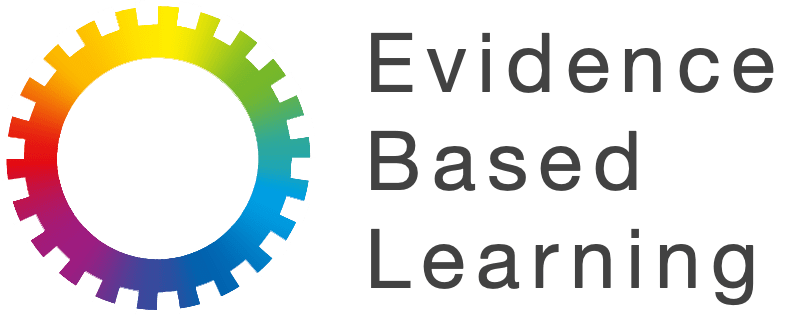


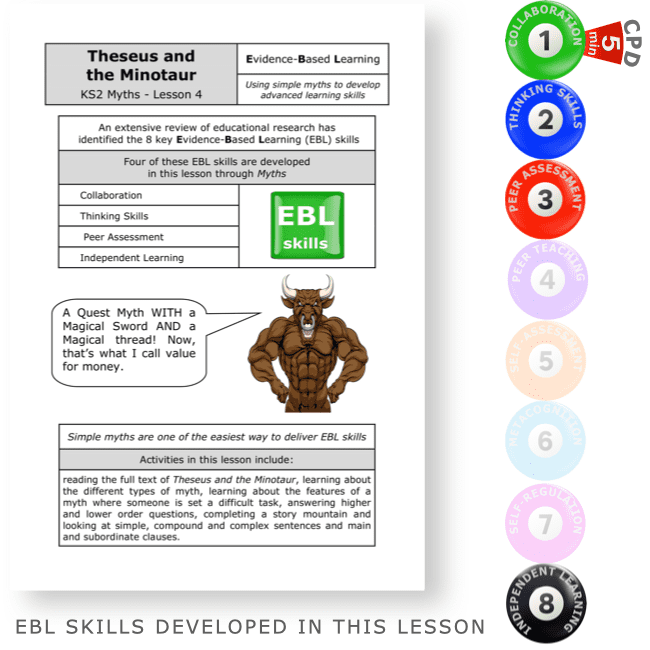
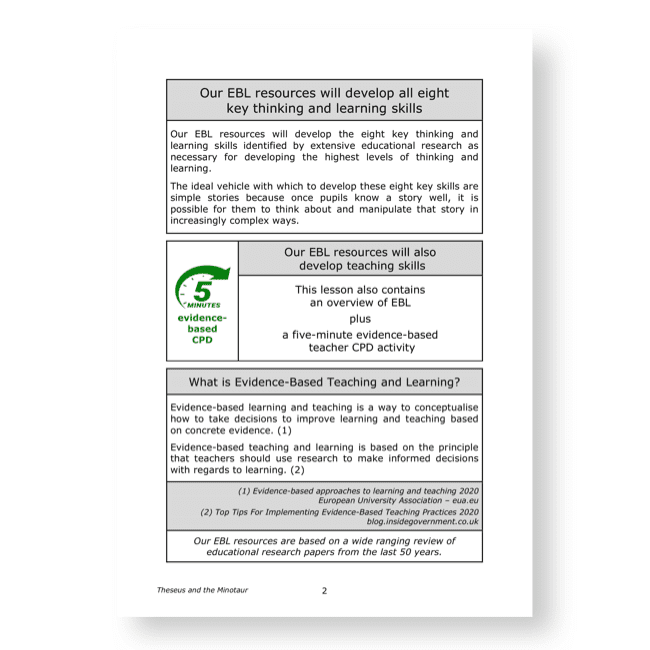
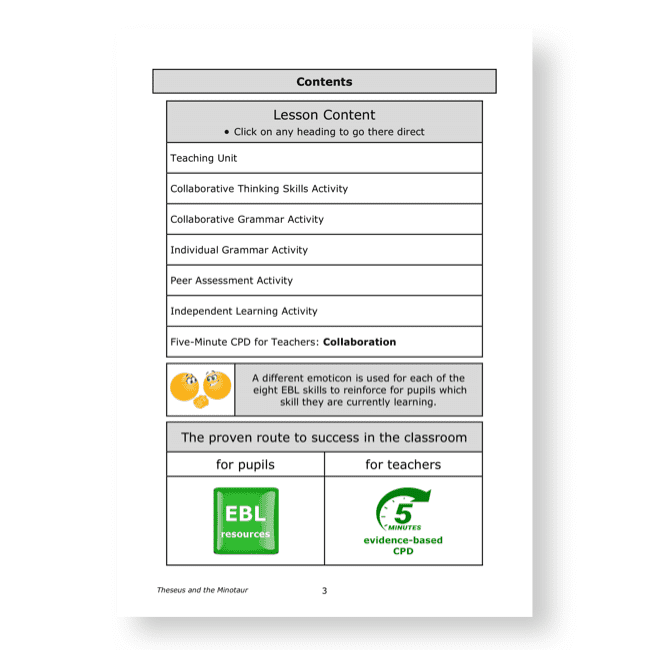
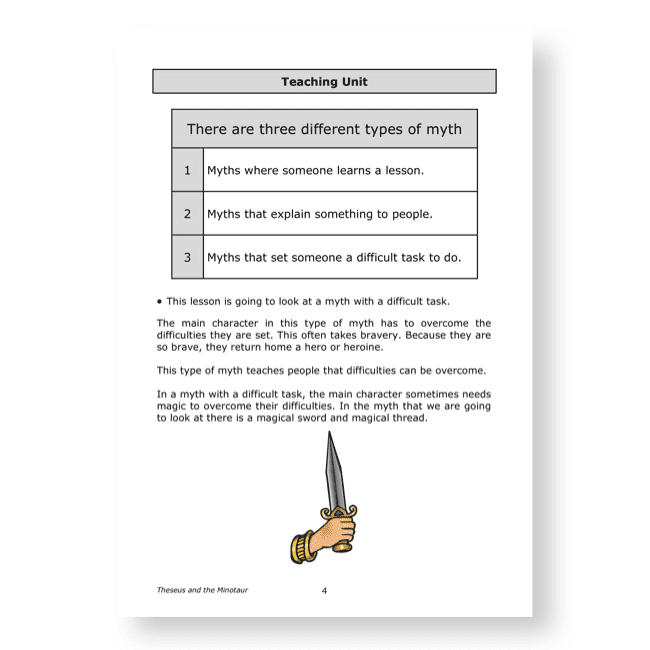
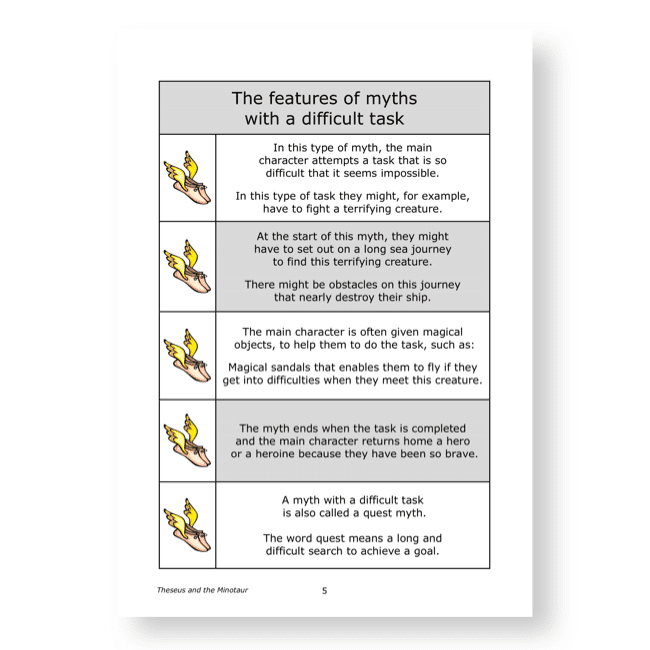
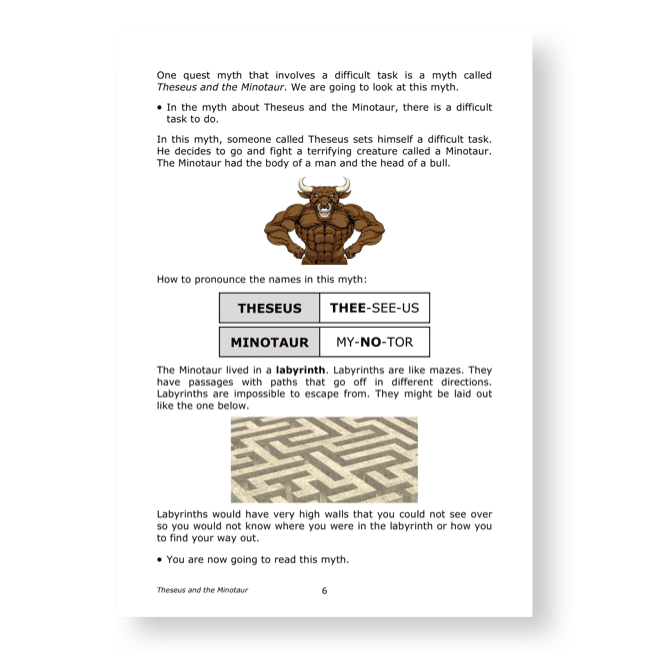
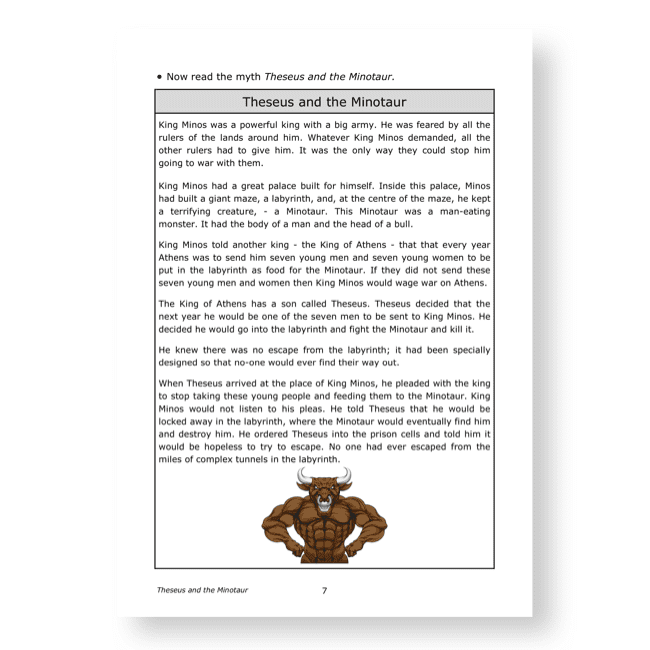
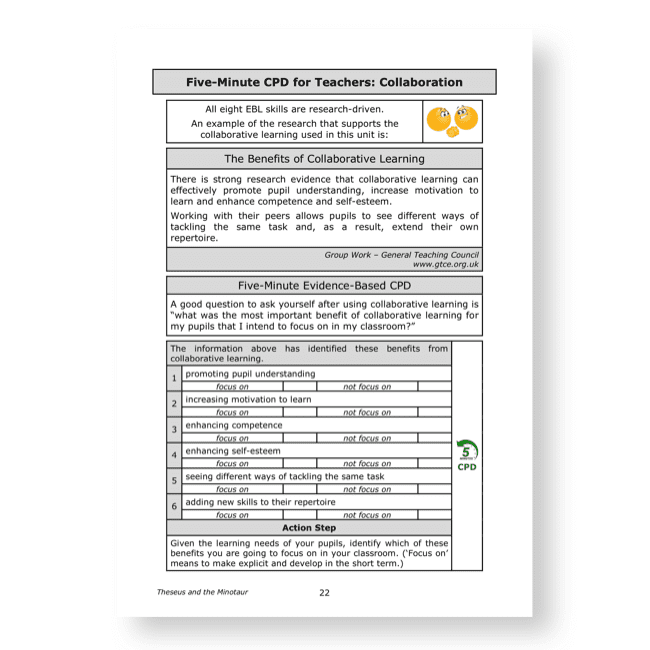

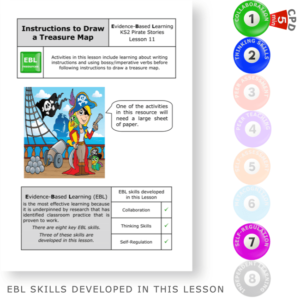
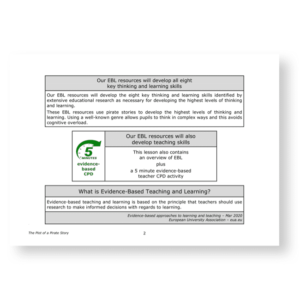
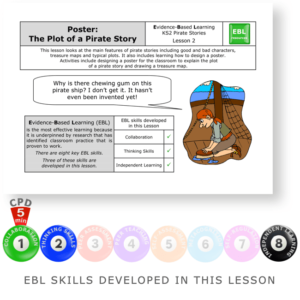
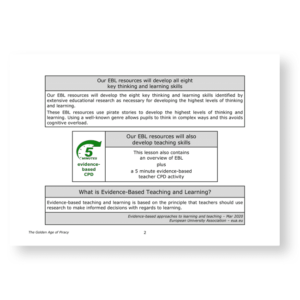
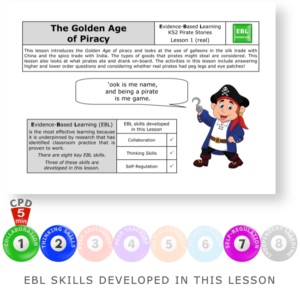

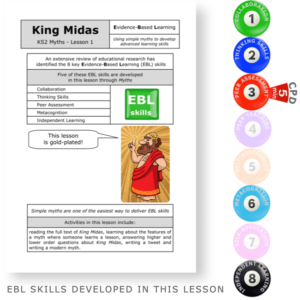
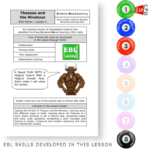
Philipem (verified owner) –
We asked a.i. to review this lesson. This is what it said:
Teaching English and Evidence-Based Learning Skills with “Theseus and the Minotaur”
Teachers, I’ve discovered a fantastic resource called “Theseus and the Minotaur” that can help you teach both English language skills and evidence-based learning skills to your KS2 students. It’s part of a series of myth lessons designed to develop key thinking and learning abilities identified by extensive educational research.
In particular, this Theseus lesson includes activities for improving collaboration, thinking skills, peer assessment, and independent learning. For example, students work together to answer comprehension questions about the myth, identify sentence types from a paragraph, and give each other feedback on grammar work.
There is also a step focused on students designing their own book blurbs to summarise the myth – great for boosting creative writing skills. And the lesson finishes with a 5-minute CPD extract for us teachers, focused on the benefits of collaborative learning. It examines research showing collaboration can increase motivation, understanding, competence and more.
Implementing structured peer work can keep students actively engaged. I highly recommend taking a look at this resource! The full lesson also includes the text of the Theseus myth itself – a fun way for students to boost their English comprehension and grammar too.
With its mix of collaborative tasks, peer assessment, and teacher CPD focused on collaboration, I give this comprehensive Theseus lesson ⭐⭐⭐⭐⭐. It covers multiple learning skill areas in an easy to deliver format. The research extract at the end is particularly useful for reflecting on how to implement effective group work.